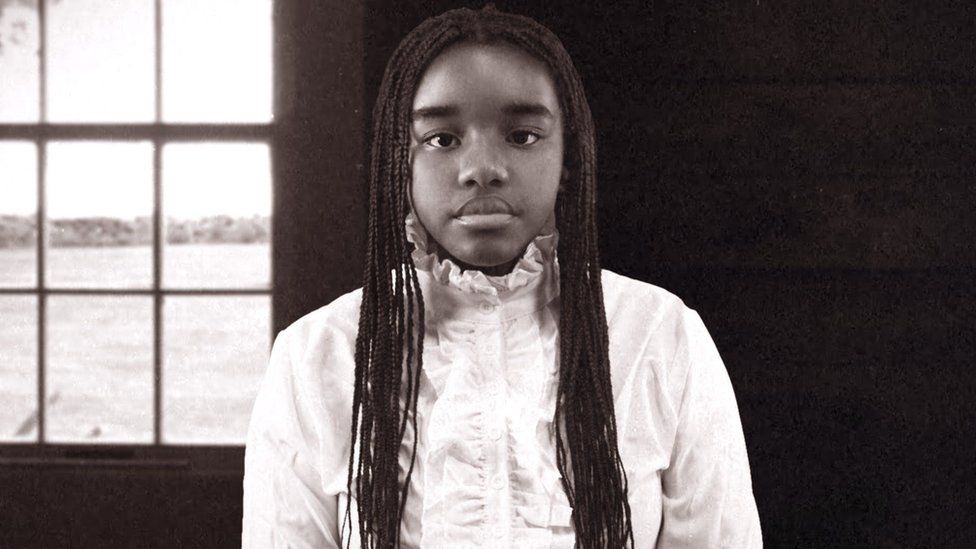How a slave-owner's daughter made a life in Scotland
- Published

In 1816, Eliza Junor, the descendant of slaves, arrived in Fortrose in the Scottish Highlands from Guyana on South America's North Atlantic coast.
Historian Dr David Alston thinks it is likely that because of her background 14-year-old Eliza would have encountered prejudice throughout her life and would have had a "vulnerable position" in society.
But he says the historical records also reveal "glimpses" of her life in the north of Scotland, as well as later in England, and friendships she formed.
Dr Alston's research has helped in the making of a new short film about Eliza.
He found that she and her brother William spent their early childhood in Demerara in Guyana, which was at the time was a British colony where slaves were put to work on sugar plantations.
Little is known of the children's mother, but she had been a slave or a woman of mixed race whose ancestors included slaves, Dr Alston says. She did not accompany her children to Scotland.
Their father was Scots-born Hugh Junor, who had gone to Guyana to make his fortune.
"Very little is known about his character," said Dr Alston, who has spent more than 20 years researching the Highlands' links to the slave trade, which include money from slavery helping to pay for the building of schools in Inverness and Fortrose.
"We do know Hugh Junor was a carpenter and came from a modest background. He goes out to Guyana and makes enough money from carpentry to buy his own slaves and a woodcutting plantation.
"There was demand for wood for the construction of buildings and Hugh's work included a government contract to build a new barracks on a boundary of Guyana."
In 1816, Junor returned to Scotland and settled in Fortrose, a village on the Black Isle's Moray Firth coast.
Dr Alston, who lives in Cromarty, just up the coast from Fortrose, said: "He made sure Eliza and William attended school in Fortrose, and we know that they both did well at school.
"Eliza won a prize for penmanship in 1817 and her brother for French in 1822.
"And then we lose sight of Eliza for a time.
"We know she was in Edinburgh in the 1820s and that a woman called Anne Fraser from Fortrose called on her one Hogmanay, giving us a glimpse of Eliza's life and that she had made friends in Fortrose."
There is next a record of Eliza giving birth to an "illegitimate child" in London. It is thought Eliza was working as a governess in the city at the time.
Dr Alston said Eliza would have had a "vulnerable position" in society because of her background and would have been taken advantage of.
Eliza moved back to Fortrose in the 1850s. Her brother William had married a woman from Glasgow and they moved to Argentina where he was involved in Methodist Church missionary work and spent the rest of life.
There is one final glimpse of Eliza in the 1861 census.
"The census records that she had a visitor, a governess called Emma McGregor," said Dr Alston.
"A few days later Eliza died and Emma McGregor is recorded as her daughter. It is likely she had come to see her mother because she was ill."
The new short film, Eliza, has been produced by Gaelic arts organisation Fèisean nan Gàidheal and will be screened during the Blas Festival, an annual celebration of Highlands and Islands culture which started on Friday.
Edinburgh-based Tawana Maramba, 18, portrays Eliza with young actors from the Black Isle, Lewis and Inverness taking other roles in the drama.
A new Gaelic song, Òran Eliza, written for the film will be made available for sale and the money raised going towards fundraising to support children in Guyana.